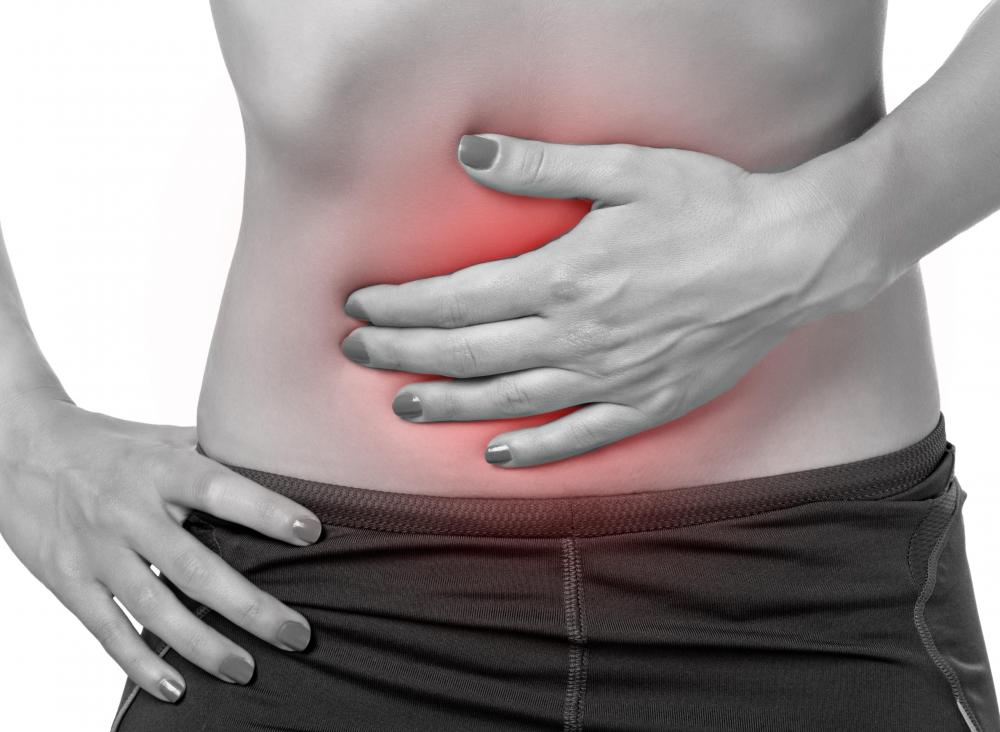At TheHealthBoard, we're committed to delivering accurate, trustworthy information. Our expert-authored content is rigorously fact-checked and sourced from credible authorities. Discover how we uphold the highest standards in providing you with reliable knowledge.
What are the Most Common Abdominal Hernia Symptoms?
An abdominal hernia occurs when an organ or tissue in the abdomen pushes through the wall of muscle, which results in pain and a noticeable protrusion. This is usually caused by abdominal wall weakness. Some of the most common symptoms of abdominal hernia include pain in the region of the protrusion, swelling in the abdomen, vomiting and fever. Constipation is also a symptom that is sometimes associated with the problem. Although the symptoms are often similar between different patients the severity can vary greatly.
The most obvious and identifiable example of the many symptoms of abdominal hernia is a protrusion or lump of tissue in the abdomen, which often can’t be pressured back in. Whether the lump can be pushed in depends on the type and size of the hernia. This tissue will usually feel tender to touch and may also appear swollen. Although the protrusion may not be the first abdominal hernia symptom, it is certainly one of the easiest to diagnose. If a person feels a protrusion in the abdominal region then he or she should immediately contact a doctor.

There are several different types of abdominal hernia. For example, a reducible hernia will often get bigger when the person stands up. An irreducible hernia may be chronic and hence occur over a long period of time. Although there are abdominal hernia symptoms that are common to different types of hernia, there are some that are type specific. For example, a reducible hernia may not be tender to touch while an irreducible one may be.

Although a protrusion of tissue is the most easily identifiable abdominal hernia symptom, pain in the same region may occur before this lump becomes noticeable. This is often the case with a reducible hernia — one which can be pushed back into the abdomen in all but the largest cases. Along with the protruding tissue pain and swelling the abdomen can be a common symptom. The level of pain is relative to the severity of the hernia in most cases.

Other abdominal hernia symptoms may include nausea and vomiting. These usually occur when the hernia is blocking or in some way restricting ht bowels. A strangulated hernia — one in which the intestine has a reduced blood supply caused by the hernia — may make the patient appear to have a fever. If a person is suspected of having a strangulated hernia then this is considered to be an emergency and will usually require immediate surgery.
AS FEATURED ON:
AS FEATURED ON:













Discuss this Article
Post your comments